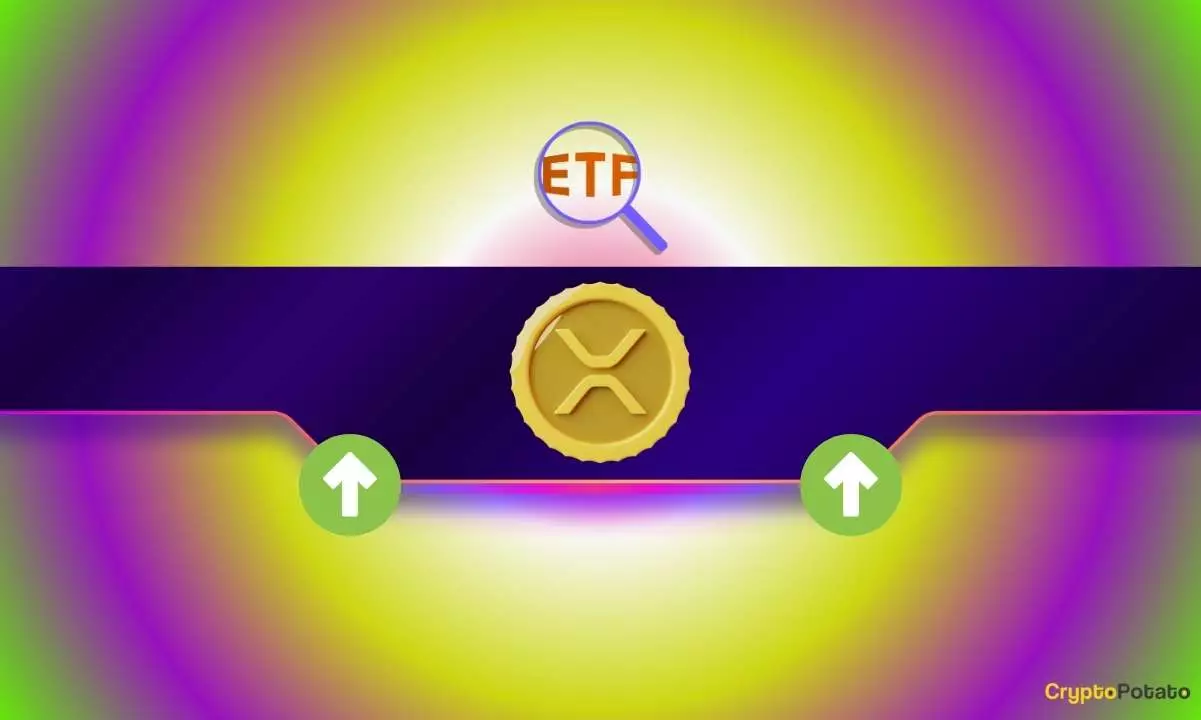In recent months, the cryptocurrency landscape has witnessed an unprecedented surge in companies vying to launch the first spot XRP exchange-traded fund (ETF) in the United States. Among the frontrunners are notable institutional players such as Grayscale, Bitwise, and 21Shares. The sudden influx of applications marks a pivotal moment for XRP, a digital asset long considered a staple in the cryptocurrency market, but also one that has faced regulatory scrutiny. The U.S. Securities and Exchange Commission’s (SEC) acknowledgment of these applications signifies a crucial step forward, akin to opening the floodgates for greater acceptance of crypto-related investment products in traditional finance.
With Grayscale’s filing recently posted to the Federal Register, the spotlight now rests on the SEC to either approve or reject the ETF application by October 18. This deadline has stirred considerable excitement within the XRP community, fostering beliefs that the prospect of an XRP ETF is not just hopeful thinking but an eventual reality. Ripple’s CEO has been an outspoken advocate for this viewpoint, frequently asserting that the launch of an XRP ETF is “inevitable.” Current market sentiments reflect this optimism, with platforms like Polymarket estimating an 81% probability for an ETF approval before the close of 2025, and a 45% chance for an approval by July 31.
While anticipation builds in the United States, it’s noteworthy that Brazil’s securities regulator recently made headlines by approving the first-ever spot XRP ETF globally. This landmark decision has briefly propelled XRP’s price to nearly $2.75, showcasing a positive market reaction to regulatory developments elsewhere. Although the Brazilian approval is significant, opinions suggest that a U.S. launch could have far-reaching effects that dwarf the impact of the Brazilian approval. The U.S. financial market’s sheer size and influence cannot be overstated—an XRP ETF in the U.S. could democratize access to XRP for a broader range of institutional and retail investors and stimulate widespread adoption of the asset.
The potential approval of an XRP ETF by the SEC could serve as a bellwether for the cryptocurrency sector as a whole. It may indicate a shift towards a more favorable regulatory environment for similar products, fostering trust among investors and paving the way for mainstream acceptance. A pivotal aspect of this development lies in the recent leadership change at the SEC, with Gary Gensler stepping down and Mark Uyeda—who has shown a more accommodating stance towards crypto—taking over. This transition could signal a new era of regulatory oversight that embraces innovation rather than stifling it.
As the world watches the U.S. SEC’s forthcoming decision on XRP ETF approvals, the implications of such a move unfold before us. Should the SEC choose to embrace this investment vehicle, it would not only reshape the perception of XRP but also act as a catalyst for elevating the entire cryptocurrency industry. With both enthusiasm and cautious optimism guiding the conversation, stakeholders are left to ponder whether this could indeed be a watershed moment for XRP and the wider financial ecosystem.














